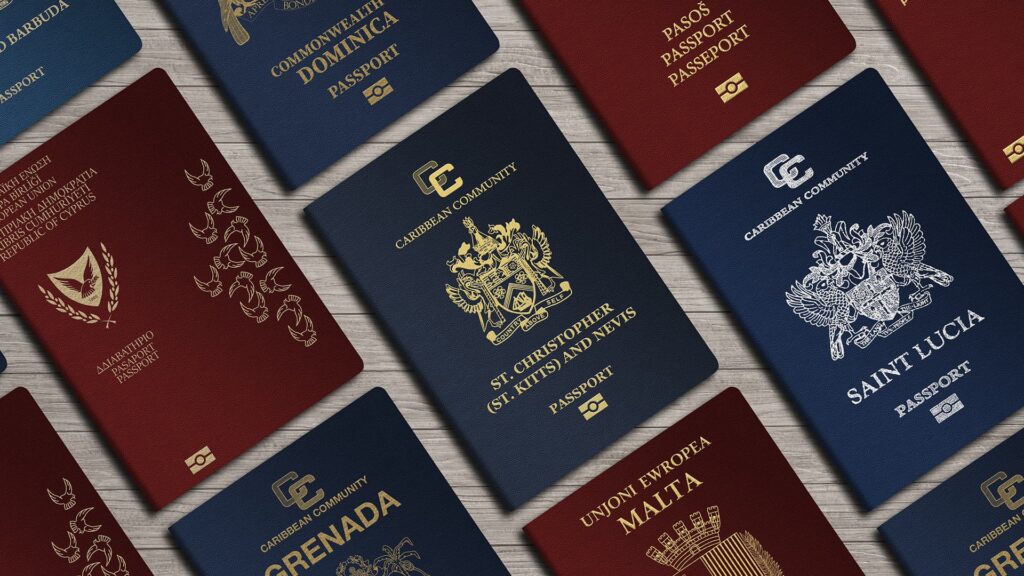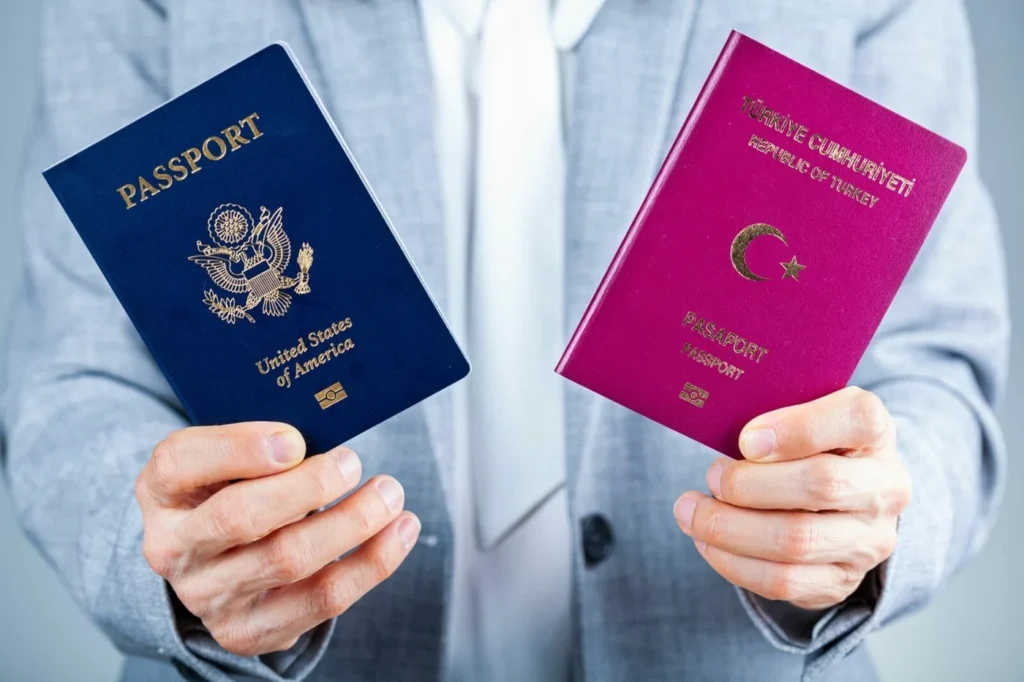Do you also wish life had fewer borders? Imagine being able to live, work, or travel in different parts of the world, without all the visa drama.
For a lot of people, that’s not just a dream; it’s real, thanks to dual citizenship.
Now, no country is just handing out second passports with zero paperwork, but some make the process way easier than you’d expect.
In fact, if you’ve got family roots or were born in the right place, you might already be eligible.
Dual citizenship can open doors to more travel freedom, better healthcare or education options, and a solid backup plan when things feel uncertain.
In this guide, we’ll walk you through 14 countries that actually make getting dual citizenship surprisingly simple.
Contents
- 1 Why a Second Passport Is a Big Deal
- 2 How You Can Get Citizenship
- 3 The Heritage Pass: Getting Citizenship Through Your Family Tree
- 4 The Birthplace Advantage: Citizenship by Soil
- 5 The Residency Route: Fast-Track Naturalization
- 6 Other Countries with Clear Residency Paths to Citizenship
- 7 Your Global Future Starts Here
Why a Second Passport Is a Big Deal

So, why bother having two passports? Think of it like a smart backup plan, or even a life upgrade. A second passport gives you way more freedom to travel, often letting you skip the visa lines in tons of countries.
But it’s not just about travel. It can also open up job opportunities, make it easier to start a business, or invest in another country.
And here’s the real bonus: it gives you options. You get access to two countries’ benefits, like public healthcare, education, and support systems.
If things ever get unstable where you live, having another place to go can give you and your family real peace of mind.
How You Can Get Citizenship

There are four main ways people can become citizens of another country. Knowing which one applies to you is the first step.
- By Descent (Family Ties):
If your parents, grandparents, or even great-grandparents were citizens of a certain country, you might be too. It’s a great way to reconnect with your heritage.
- By Birth (Being Born There):
Some countries give you citizenship just for being born on their land, even if your parents aren’t citizens. This is pretty common in places like the U.S. and Canada.
- By Naturalization:
This means living in a country for a set number of years and then applying to become a citizen. Some countries make this process quicker than others.
- By Special Cases:
This includes things like marrying a citizen, or (if you’ve got the money) investing in the country. These paths usually come with specific rules.
The Heritage Pass: Getting Citizenship Through Your Family Tree
One of the easiest ways to get a second passport is to look to your ancestors. Some countries make it surprisingly simple to claim citizenship if your parents, grandparents, or even great-grandparents came from there. This is called citizenship by descent.
Ireland: The Grandparent Rule
Ireland is one of the friendliest countries when it comes to claiming citizenship through your family. If you have a grandparent who was born in Ireland, you could be eligible. Here’s how it works:
- If one of your parents was born in Ireland, you’re automatically a citizen; no paperwork needed.
- If your connection is through a grandparent, you’ll need to register through something called the Foreign Births Register (FBR).
- Got an Irish great-grandparent? You might still qualify, but only if your parent registered with the FBR before you were born.
- The process includes an online form, collecting documents like birth and marriage certificates, and paying a fee (around €278 for adults).
Italy: The Unbroken Bloodline
Italy has one of the most generous descent-based citizenship laws out there. There’s no generational limit as long as your Italian ancestor didn’t give up their citizenship before the next person in your family line was born.
However, if your family line goes through a woman who gave birth before January 1, 1948, your case is a bit more complex. Before 1948, Italian women couldn’t pass on citizenship. A court ruling in 2009 changed that, but these “1948 cases” have to be handled through the courts in Italy, not a consulate.
So if your claim is straightforward (like through a male ancestor), you can apply at a local Italian consulate. If it’s a 1948 case, you’ll need a lawyer and a court application in Italy.
Portugal: Two Paths, One Passport
Portugal offers two ways to claim citizenship through heritage:
- Standard route: If you have a Portuguese parent or grandparent, you can apply by showing the right documents proving your lineage.
- Sephardic Jewish ancestry: If you’re a descendant of Sephardic Jews expelled from Portugal during the Inquisition, you may also qualify. You’ll need to prove your heritage and show a connection to a Portuguese Sephardic community. Bonus: you don’t even need to live in Portugal for this one.
The Birthplace Advantage: Citizenship by Soil
In many parts of the world, especially the Americas, where you’re born can automatically make you a citizen. This is called jus soli, or “right of the soil.” While most European countries focus on bloodline (citizenship by descent), many countries in the Americas welcome new citizens just by birth.
Brazil
If you’re born in Brazil, you’re a citizen, simple as that. It doesn’t matter where your parents are from or what their immigration status is. Birth on Brazilian soil = Brazilian citizenship.
Canada
Canada also offers birthright citizenship to nearly everyone born there. The only exception? Children of foreign diplomats. Otherwise, if you’re born in Canada, you’re Canadian.
Chile
Chile grants citizenship to most people born in the country, too. The only exceptions are children of foreign diplomats or “transient” foreigners. But even they can apply for citizenship later if they choose.
Pakistan
Outside the Americas, Pakistan stands out. Anyone born in Pakistan after 1951 is automatically a citizen, unless their parents are diplomats or considered enemy aliens.
Dominican Republic
The Dominican Republic used to have very open birthright citizenship laws. But recent legal changes, especially involving children of undocumented immigrants, have made things more complicated. It’s best to check the latest rules if this applies to you.
Uruguay
In line with many of its South American neighbors, Uruguay gives citizenship to anyone born there. It’s part of the country’s long tradition of welcoming immigrants from around the world.
Also See: 6 Countries Where Americans Can Buy Property and Get Instant Residency
The Residency Route: Fast-Track Naturalization
If you don’t have family roots or weren’t born in the right place, don’t worry, there’s still another way: naturalization. That’s when you become a citizen by living in a country for a certain number of years.
Most countries ask you to live there for 5 to 10 years, but some offer fast-track options, especially if you’re from certain countries or backgrounds.
Spain: A Historical Fast Track to Dual Citizenship
Spain usually requires 10 years of residency to apply for citizenship. But there’s a much shorter route for people from:
- Latin American countries
- The Philippines
- Andorra
- Equatorial Guinea
- Portugal
- And those with Sephardic Jewish ancestry
If you’re from one of these groups, you only need to live in Spain for two years before you can apply. Here’s what you’ll need to do:
- Live in Spain legally and continuously for the full two years
- Pass a basic Spanish language test (DELE A2)
- Pass a cultural knowledge test (CCSE)
Spain has dual citizenship agreements with these countries, so you won’t need to give up your original citizenship when you apply.
Related: I’ve Lived in Spain for 5 Years — Here Are 10 Unspoken Rules To Follow When You Visit
Other Countries with Clear Residency Paths to Citizenship
If you’re open to living in a new country for a few years, several places offer straightforward (though not instant) ways to become a citizen. Here’s how it works in some well-known countries:
Portugal
Time required: 5 years
Extras: Pass a basic Portuguese language test (A2 level)
Known for being one of the easiest EU countries to get citizenship through residency.
Sweden
Time required: 5 years
Extras: You’ll need to show good character (no serious criminal record).
The process is clear, and Sweden generally welcomes new citizens.
Switzerland
Time required: 10 years
Extras: You’ll need to show strong integration—speaking a national language, knowing local customs, and being part of the community.
Applications are reviewed at the local, cantonal, and federal levels, so it’s more involved.
Canada
Time required: 3 years (1,095 days) of living in Canada within a 5-year period
Extras: You must be a permanent resident
One of the quicker and more popular paths among developed countries.
Australia
Time required: 4 years total, including 1 year as a permanent resident
Extras: Pass a citizenship test and meet language and character requirements.
New Zealand
Time required: 5 years as a resident
Extras: You need to have spent a minimum amount of time physically in the country each year
Offers a balanced lifestyle and a clear, structured process.
Also Read: 10 Expat-Friendly Cities Where You Can Actually Live Like a Millionaire on Just $1,500 a Month
Your Global Future Starts Here
Getting a second passport isn’t just about easier travel; it’s a smart way to build a more flexible, secure life. Whether it’s through your family roots, where you were born, or by living abroad, there are real paths to making it happen. The table below gives you a quick look at the easiest options I’ve covered, so you can start planning your next move.
Most Accessible Pathway
Core Requirement
Minimum Residency
Language/Civic Test?
Dual Citizenship Policy
Portugal
Descent / Naturalization
Portuguese grandparent / 5 years residency
None / 5 years
Yes (for naturalization)
Allowed
Ireland
Descent (Grandparent)
Irish-born grandparent
None
No
Allowed
Italy
Descent (Jure Sanguinis)
Italian ancestor (no limit)
None
No
Allowed
Spain
Naturalization (Fast Track)
Citizen of treaty country / 2 years residency
2 years
Yes
Allowed for treaty countries
Sweden
Naturalization
5 years residency
5 years
Yes
Allowed
Brazil
Birth (Jus Soli)
Birth on Brazilian soil
None
No
Allowed
Chile
Birth (Jus Soli)
Birth on Chilean soil
None
No
Allowed
Pakistan
Birth (Jus Soli)
Birth on Pakistani soil
None
No
Allowed
Switzerland
Naturalization
10 years residency
10 years
Yes
Allowed
Canada
Birth / Naturalization
Birth on soil / 3 years residency
None / 3 years
Yes (for naturalization)
Allowed
Australia
Naturalization
4 years residency (1 as PR)
4 years
Yes
Allowed
New Zealand
Naturalization
5 years residency
5 years
Yes
Allowed
Dominican Republic
Birth (Jus Soli)
Birth on soil (with restrictions)
None
No
Allowed
Uruguay
Birth (Jus Soli)
Birth on Uruguayan soil
None
No
Allowed
Having dual citizenship is a big win, but it also comes with responsibilities. You might have to pay taxes in both countries, follow two sets of laws, and keep up with paperwork. That’s why it’s a good idea to talk to a legal expert before diving in, so you know exactly what you’re signing up for.
That said, if you’re willing to go through the process, the benefits: more freedom, more options, and a more secure future, can be totally worth it.